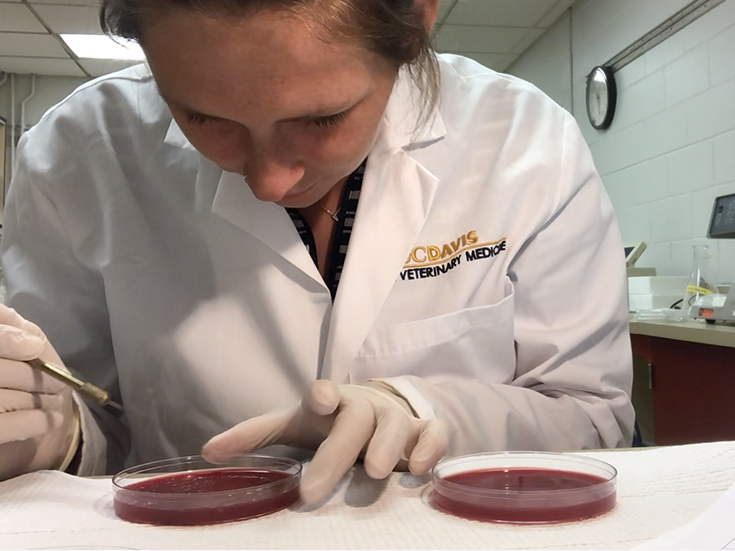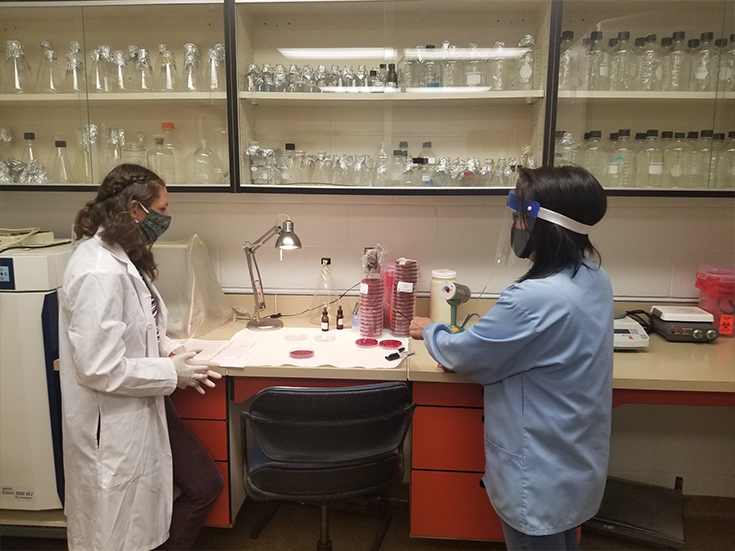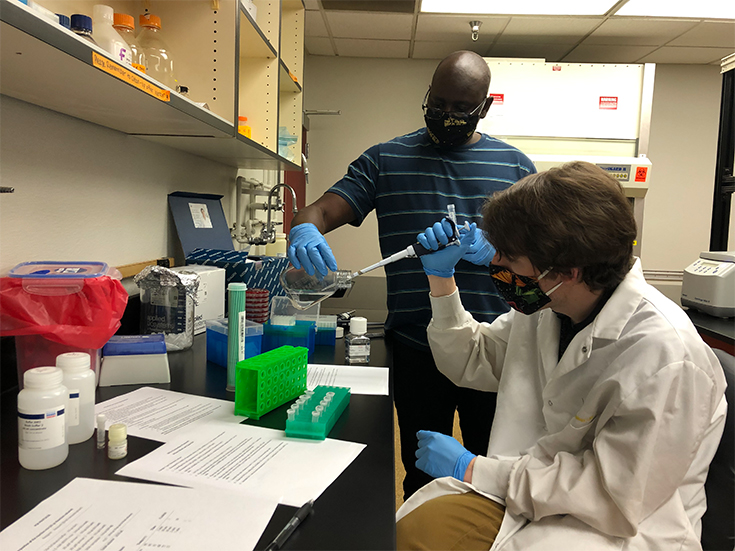Anett Szczepanek – Tulare, CA
Anett Szczepanek
This summer I was planning on traveling to Lilongwe, Malawi to investigate the prevalence of antimicrobial resistance of Escherichia coli in commercial and backyard chickens. This project was centered around helping the Malawi community in light of recent spikes in antimicrobial resistance in hospitals coupled with the lack of antimicrobial drug administration laws and the country’s reliance on poultry as their staple food product. Due to changes brought on by COVID, I shifted my project to still incorporate antimicrobial resistance but domestically. I was fortunate enough to travel to the Veterinary Medicine Teaching and Research Center located in Tulare, California. This facility is an extension of the UC Davis School of Veterinary Medicine that is focused on researching dairy health while improving dairy management and food safety through community outreach. I worked on two projects during my time at Tulare, both centered around antimicrobial resistance in dairy calves.
The first project was focused specifically on quantifying antimicrobial drug usage from pre-weaned dairy calves from both calf ranches and dairies from across California, which was part of a study run by the Dairy Epidemiology Lab in Tulare in 2017. The goal of the study was to benchmark antimicrobial drug usage in California dairy calves following the implementation of the Veterinary Feed Directive starting in 2017 and before the implementation of California Senate Bill 27. Both of these regulations increased veterinary oversight in the distribution and use of antimicrobials in livestock as a measure to improve dairy management practices. Our longitudinal prospective study surveyed 310 calves from 3 dairies and 4 calf ranches located in the California Central Valley. Calves were enrolled at birth (1 to 3 days old) and followed until weaning (60 days). During the follow-up period, disease and treatment records were collected using record cards attached to calf hutches. Although I was unable to collect this data from the field, I gained valuable insight in the detailed process of analyzing the collected data and how important it is to be thorough and transparent. I learned about the different management styles of each dairy through the explanations provided by Dr. Okello and Dr. Aly, and noted how important collaboration was with every phone call we made to gather extra information from other field veterinarians that assisted in data collection. In addition, I gained valuable knowledge on coding using the STATA software program, with the help of the fantastic Tulare team. Ultimately, I was able to quantify the total amount of antimicrobials used by each calf facility and antimicrobial class and determined the correlation between dairy management practices and the occurrence of antimicrobial drug treatment. This information is critical in understanding the relationship between drug usage and management while providing informing future antimicrobial stewardship efforts.
In addition, I dove into another project aimed at identifying the antimicrobial resistance of Staphylococcus and Streptococcus species in bulk tank milk samples from various herds across California. The goal of this study is to provide surveillance data on AMR that can provide veterinarians with valuable information to guide the management of mastitis on dairies. To identify resistance, I first plated milk on blood agar plates and learned to isolate Streptococcus and Staphylococcus species using colony morphology and biochemical tests, such as catalase testing and gram staining. For each colony, I determined the Minimum Inhibitory Concentration using a Sensitre System to detect resistance to 10 different antibiotics on 250 samples. There were numerous moments when I felt stuck, but I could always walk across the hall to ask staff members for insight. Because of COVID, there were minimal staff present in Tulare, but the feeling of community was still present throughout my stay. All of the members had a collective motivation for improving food safety and fostered an environment that was conductive for learning and growing. My time at Tulare was full of countless moments of inspiration along with personal and professional growth. This experience strengthened my collaboration, critical thinking, and hands-on laboratory skills. I am incredibly grateful for all my mentors' guidance and encouragement during challenging moments and this experience has grown my passion for research, strengthened my ability to adapt and collaborate while solidifying my desire to continue working in the One Health Field. I will definitely be back in Tulare!



